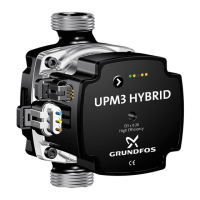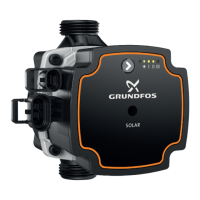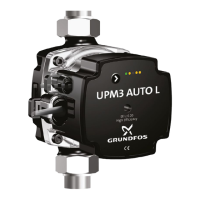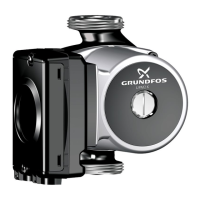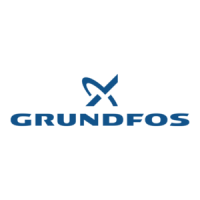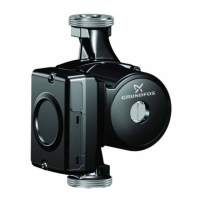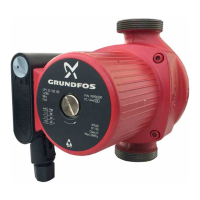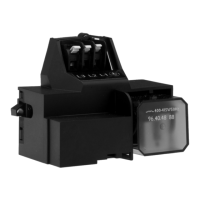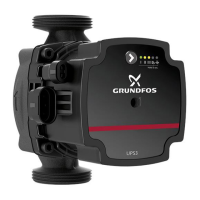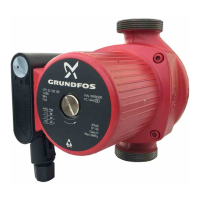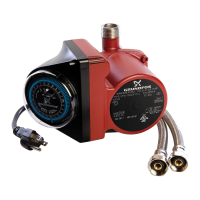UPM3F
• This pump is designed to work in environments
where propane (A3 flammable refrigerant) is present.
Hydronic balancing
Hydronic balancing is important for a well-performing
heating system regarding energy consumption and room
comfort. A balanced system secures the best possible
distribution of the needed flow in the heating system. It
also secures that the pump performance is not too high.
When using the UPM3 LIN pump together with the
Grundfos GO Balance app and the ALPHA Reader
dongle, it is possible to perform hydronic balancing of two-
pipe or underfloor-heating systems by using real-time flow
measurement from the pump.
TM068574
ALPHA Reader
ErP, Ecodesign regulation in brief
The EU has addressed the climate challenge in a
EuP/ErP directive: Since August 2015, all stand-alone
pumps as well as pumps integrated in boiler systems,
solar systems and heat pump systems must fulfil
Ecodesign requirements, defined in regulation
641/2009/EC on glandless pumps, which was amended
by 622/2012/EC. The regulation has set radically new
standards for energy efficiency.
The essentials
• Glandless pumps integrated in products must have
an energy efficiency index (EEI) of not more than
0.23. The benchmark level is 0.20.
• Stand-alone pumps are measured according to EN
16297-2.
• Integrated pumps are measured according to EN
16297-3, due to their various functions integrated in
many customised hydraulic solutions on the market.
• All pumps integrated in products which generate
and/or transfer heat and all types of media are
included. This means that not only heating systems,
but also solar thermal and heat pump systems are
affected by the Ecodesign regulation.
• Non-compliant spare pumps for integrated pumps
sold before August 2015 are allowed until January
1st, 2020.
• Pumps designed for recirculation of drinking water
are out of scope of this regulation.
• Conformity with EU regulations are governed through
mandatory CE marking.
All UPM3(K), UPM3S, UPM3L, UPMO variants meet the
Ecodesign requirements measured by EN 16297-2 and
EN 16297-3:2012.
UPM3
4
11
Features and benefits
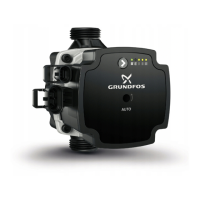
